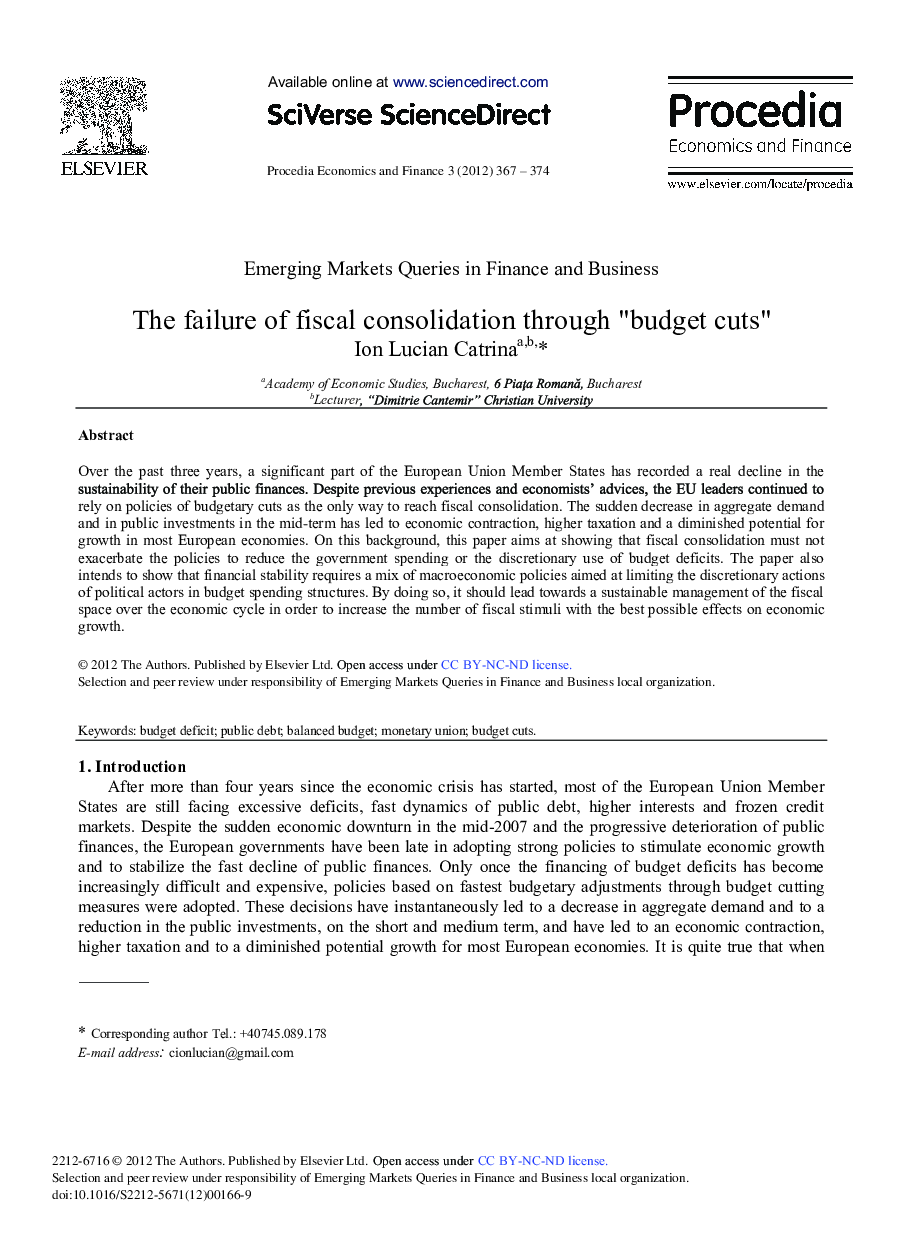| کد مقاله | کد نشریه | سال انتشار | مقاله انگلیسی | نسخه تمام متن |
|---|---|---|---|---|
| 982099 | 1480398 | 2012 | 8 صفحه PDF | دانلود رایگان |

Over the past three years, a significant part of the European Union Member States has recorded a real decline in the sustainability of their public finances. Despite previous experiences and economists’ advices, the EU leaders continued to rely on policies of budgetary cuts as the only way to reach fiscal consolidation. The sudden decrease in aggregate demand and in public investments in the mid-term has led to economic contraction, higher taxation and a diminished potential for growth in most European economies. On this background, this paper aims at showing that fiscal consolidation must not exacerbate the policies to reduce the government spending or the discretionary use of budget deficits. The paper also intends to show that financial stability requires a mix of macroeconomic policies aimed at limiting the discretionary actions of political actors in budget spending structures. By doing so, it should lead towards a sustainable management of the fiscal space over the economic cycle in order to increase the number of fiscal stimuli with the best possible effects on economic growth.
Journal: Procedia Economics and Finance - Volume 3, 2012, Pages 367-374